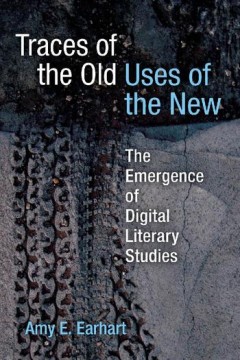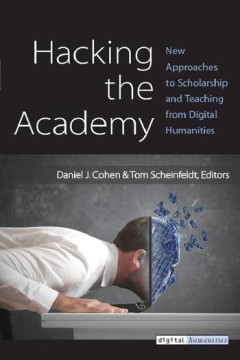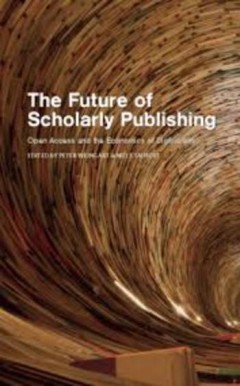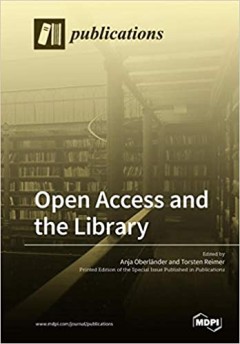Filter by

Traces of the old, uses of the new : the emergence of digital literary studies
Digital Humanities remains a contested, umbrella term covering many types of work in numerous disciplines, including literature, history, linguistics, classics, theater, performance studies, film, media studies, computer science, and information science. In Traces of the Old, Uses of the New: The Emergence of Digital Literary Studies, Amy Earhart stakes a claim for discipline-specific history…
- Edition
- -
- ISBN/ISSN
- 9780472072781
- Collation
- ix, 161p. : ill.
- Series Title
- -
- Call Number
- 802.85 EAR t

Hacking the academy : new approaches to scholarship and teaching from digital…
An exploration of ongoing efforts to rebuild scholarly infrastructure
- Edition
- -
- ISBN/ISSN
- 9780472071982
- Collation
- 168p. : ill.
- Series Title
- -
- Call Number
- 001.2 HAC h

The future of scholarly publishing : open access and the economics of digitis…
The formal scientific communication system is currently undergoing significant change. This is due to four developments: the digitisation of formal science communication; the economisation of academic publishing as profit drives many academic publishers and other providers of information; an increase in the self-observation of science by means of publication, citation and utility-based indicato…
- Edition
- -
- ISBN/ISSN
- 9781928331537
- Collation
- ix, 277p. : ill.
- Series Title
- -
- Call Number
- 070.57973 FUT f
Libraries driving access to knowledge
This book is a must for librarians with international interest in access to knowledge. It includes a collection of 15 chapters written by authors from all over the world and covers different approaches to the vital role of libraries driving access to knowledge. There are chapters that offer solutions and ideas to enable libraries to become the knowledge engine in society. Other chapters discuss…
- Edition
- -
- ISBN/ISSN
- 9783110263121
- Collation
- 402p. : illustrations ; 24 cm.
- Series Title
- IFLA publications, 151
- Call Number
- 021.2 LAU l

Open access and the library
Libraries are places of learning and knowledge creation. Over the last two decades, digital technology—and the changes that came with it—have accelerated this transformation to a point where evolution starts to become a revolution.The wider Open Science movement, and Open Access in particular, is one of these changes and is already having a profound impact. Under the subscription model, the…
- Edition
- -
- ISBN/ISSN
- 9783038977407
- Collation
- vii, 131p. : ill.
- Series Title
- -
- Call Number
- 026.3 OPE o
 Computer Science, Information & General Works
Computer Science, Information & General Works  Philosophy & Psychology
Philosophy & Psychology  Religion
Religion  Social Sciences
Social Sciences  Language
Language  Pure Science
Pure Science  Applied Sciences
Applied Sciences  Art & Recreation
Art & Recreation  Literature
Literature  History & Geography
History & Geography